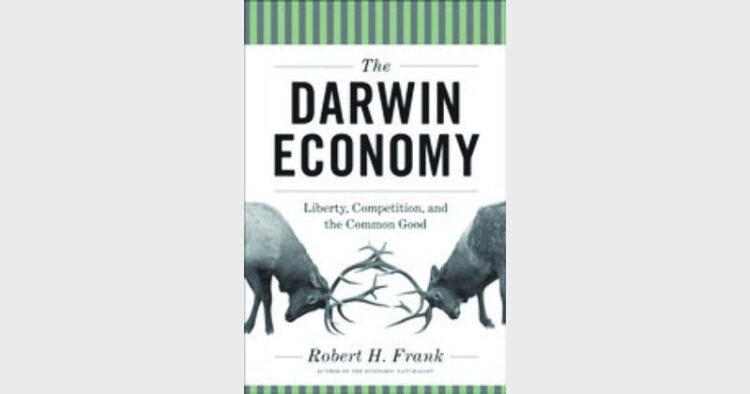BOOKMARK-5
By Dr R. Balashankar
The Darwin Economy – Liberty, Competition and the Common Good, Robert H Frank, Princeton University Press, Pp 240(HB), $26.95
Darwin an economist? Well, yes says Robert H. Frank, author of The Darwin Economy – Liberty, Competition, and the Common Good. “Darwin’s view of the competitive process was fundamentally different. His observations persuaded him that the interests of individual animals were often profoundly in conflict with the broader interests of their own species.”
This, as opposed to Adam Smith’s theory of the “invisible hand” can answer and resolve several issues regarding tax and governance, says Frank.
Strongly supporting government tax, arguing against the libertians, Frank emphasises on the role of government in economy. During the time of depression, the individuals are not capable of investment or buying, the corporate in its self-interest would not venture out much. In such a scenario, it is the government that has to spend and set the ball rolling he says.
Quoting anti-government crusades, he says they advocate starve-the-beast policy. But which beast? California is the epicentre of anti-tax movement. Frank points out how the state, which was once in the top, has fallen behind. The ratings of its schools have fallen, the roads have become one of the dilapidated networks, the public libraries operate shorter hours or have closed down, and the social benefits, once among the largest in America have shrunk to a skeleton. These are the result of a government that has been squeezed of tax revenue which would have been ploughed back. “Starve-the-beast proponents might be likened to a doctor who treats a patient suffering from intestinal parasites by ordering him to stop eating. The patient’s food intake, he explains, the very lifeblood of the parasites. Cut that off, they will eventually die.”
Conceding that there is government waste and there is a huge scope for cutting down wasteful expenditure, he says the solution is not to deny taxes. The corporate funding of the presidential elections in America, he feels, is one of the reasons why successive administrations have not been free to act in public interest. The Darwin theory of what is good for some is not good for the species applies here. Robert also canvasses for carbon tax and raising revenue from the public for social sector spending.
Robert H Frank is an Economics professor at Cornell’s Johnson Graduate School of Management, a columnist with the New York Times and a distinguished Fellow at Demos. His ideas are bold, a swimming against current kind. But his arguments make sense, presented in deductive logic.
(Princeton University Press41 William Street, Princeton, New Jersey 08540)














Comments